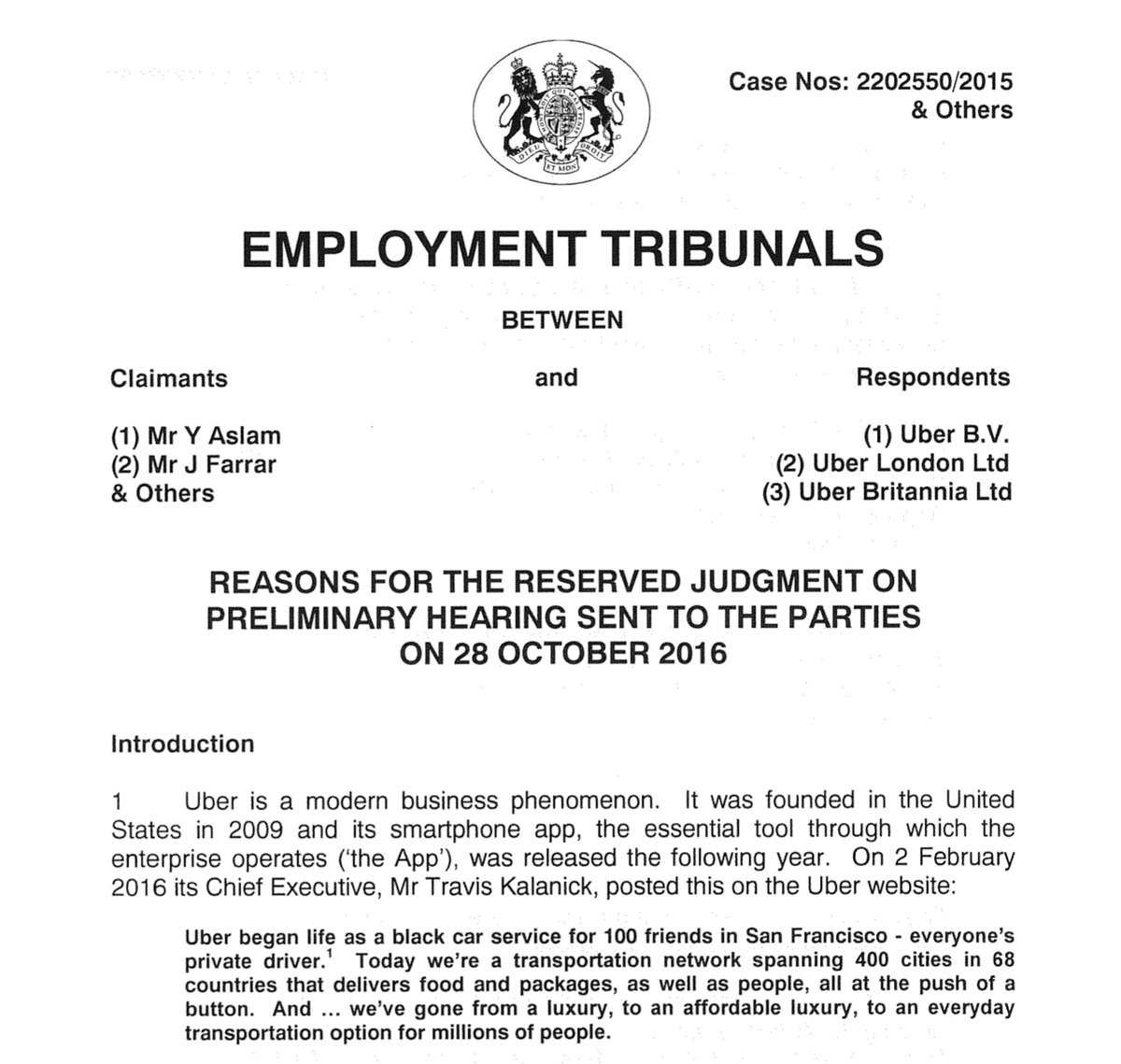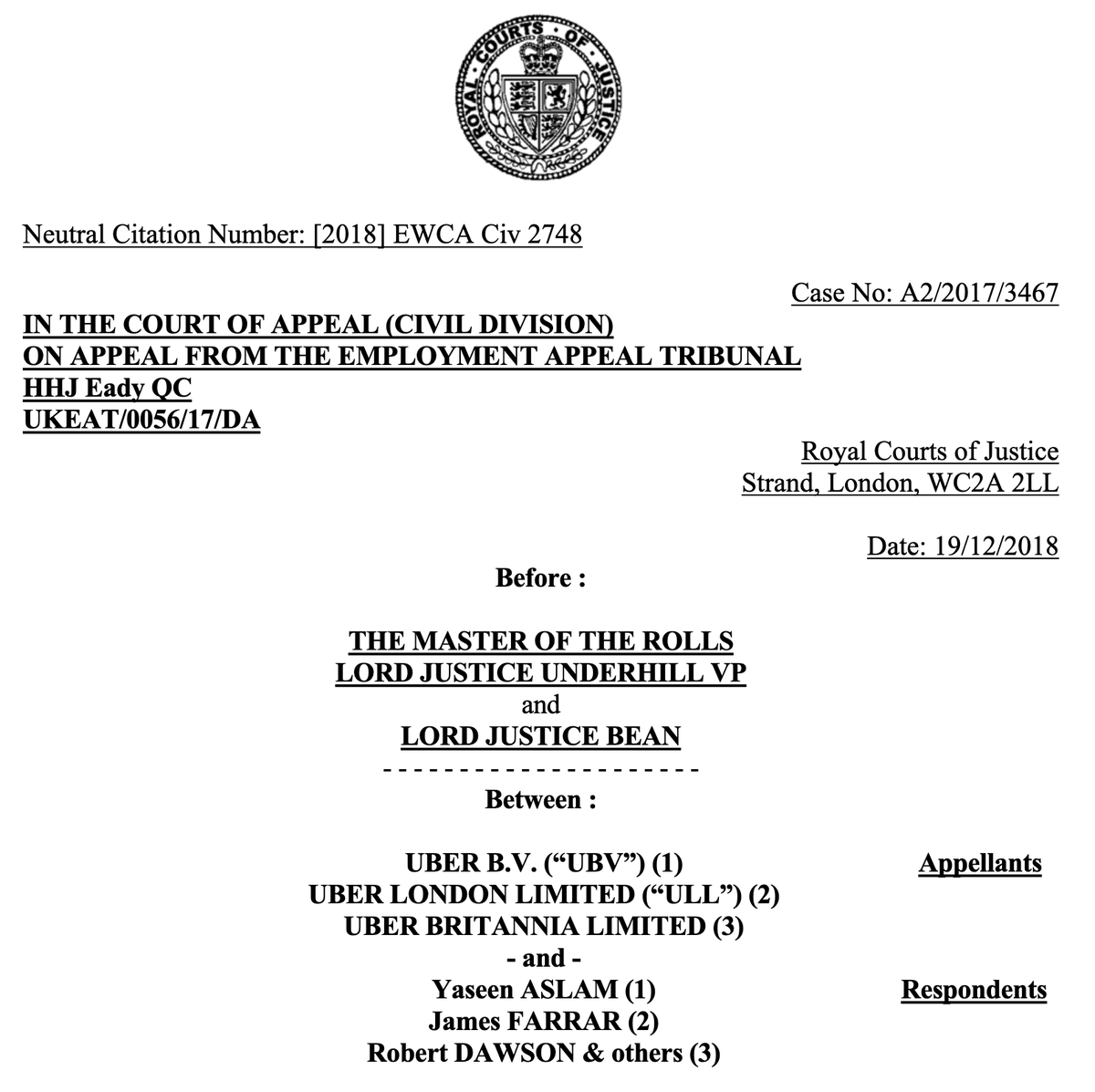Big day ahead for #ukemplaw & the gigeconomy: the UK Supreme Court is about to rule on whether @Uber drivers are workers.  with some history and background while we wait
with some history and background while we wait 
 with some history and background while we wait
with some history and background while we wait 
It all started as long ago as 2015/16 - when @Uber first lost its case in the Employment Tribunal. The Tribunal was highly critical of the practices of 'armies of lawyers' resorting to ‘fictions, twisted language and even brand new terminology’
For fuller background on the ET decision, as well as the links to other important #gigeconomy cases like @PimlicoPlumbers , see this note: https://papers.ssrn.com/sol3/papers.cfm?abstract_id=2948712
In November 2017, the Employment Appeal Tribunal rejected @Uber's appeal, and fully vindicated the ET. Analysis here  https://twitter.com/JeremiasPrassl/status/928999294933327872
https://twitter.com/JeremiasPrassl/status/928999294933327872
 https://twitter.com/JeremiasPrassl/status/928999294933327872
https://twitter.com/JeremiasPrassl/status/928999294933327872
Just over a year later, the Court of Appeal had its say - and once more found that @Uber drivers were workers, rather than independent contractors as suggested by the company...
... but, for the first time, there was dissent: Underhill LJ agreed with @Uber that on the proper construction of the contractual agreement, drivers should fall outside the scope of employment law
The stage was set for two days of compelling argument before the (virtual) Supreme Court - you can rewatch the sessions here:  https://www.supremecourt.uk/watch/uksc-2019-0029/210720-am.html
https://www.supremecourt.uk/watch/uksc-2019-0029/210720-am.html
 https://www.supremecourt.uk/watch/uksc-2019-0029/210720-am.html
https://www.supremecourt.uk/watch/uksc-2019-0029/210720-am.html
So, here we are: are the claimant drivers "workers" providing personal services to @Uber? (And, if so, what periods constituted their "working time" - whenever the app was on, or merely when transporting passengers?) Not long to go now!

 Read on Twitter
Read on Twitter






